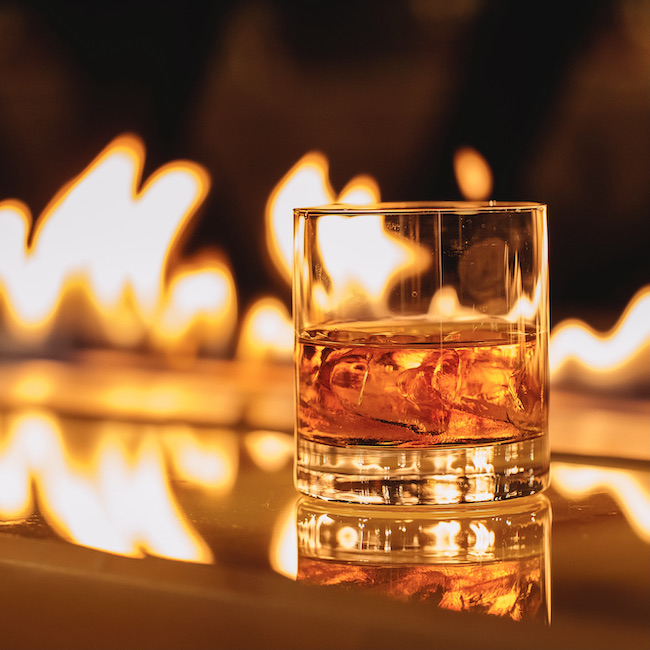.png.transform/rendition-xs/image_image%20(1).png)
Whiskey
This beverage is obtained from the distillation of the malted wort of cereals such as barley or corn
Malting is the stage of its production in which the raw material, after being moistened and allowed to germinate, is dried in kilns, a process by which it takes on its pleasant dark color: at this point we can talk about malt as such. Once ground and mixed in a tank, yeast is added and left to ferment. The resulting product must be distilled one or more times at less than 94.8% vol. so that the distillate includes both the aroma and flavor derived from the materials used.
After distillation, it will mature in oak barrels, which will provide aroma, tannins, and flavor, for a period of at least 3 years before bottling. The minimum alcohol content of whiskey is 40% vol. Only water or natural caramel may be added to adjust the color, so that the aroma and taste of the beverage derive only from the above process.
Types of whiskey
The different types of whiskey are differentiated mainly according to the origin of the raw material. In general, whiskies can be made from one hundred percent malted barley ("pure malt whiskey"), from combinations of unmalted barley, corn, and other cereals ("grain whiskey"), from the mixture in different proportions of malt and grain, or from the direct blending of finished whiskies ("blended"), according to the taste and experience of each producer.

History of whiskey
Although its Scottish or Irish origin is disputed, it is known that its name comes from the Gaelic uisge beatha, or "water of life," which over the years led to the term whiskey or whisky. We do know that it was first distilled in Scotland in 1494 and introduced into society as a medicine. Two hundred more years would pass, however, before we find the first written references to a distillery.
In the following centuries, the scarce and restrictive regulation of the market caused illegal distilleries and alcohol smuggling to flourish, as well as disastrous social and health results. In 1823, British Parliament was forced to pass a law granting licenses to all distilleries. This regularization liberalized the market, facilitating, for example, the emergence of the blended category. Since then, internationalization, competition, and technological advances, while respecting the rules that allow the rich experience of traditional origin to be maintained, have made it possible to produce a wide variety of products and qualities, and it is currently one of the most important spirits there is.
Whiskies can be made from one hundred percent malted barley ("pure malt whiskey"), from combinations of unmalted barley, corn, and other cereals ("grain whiskey"), from the mixture in different proportions of malt and grain, or from the direct blending of finished whiskies ("blended").
